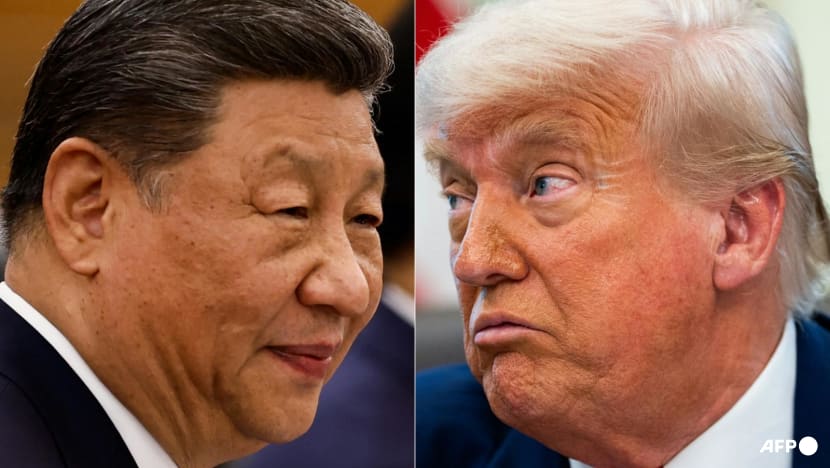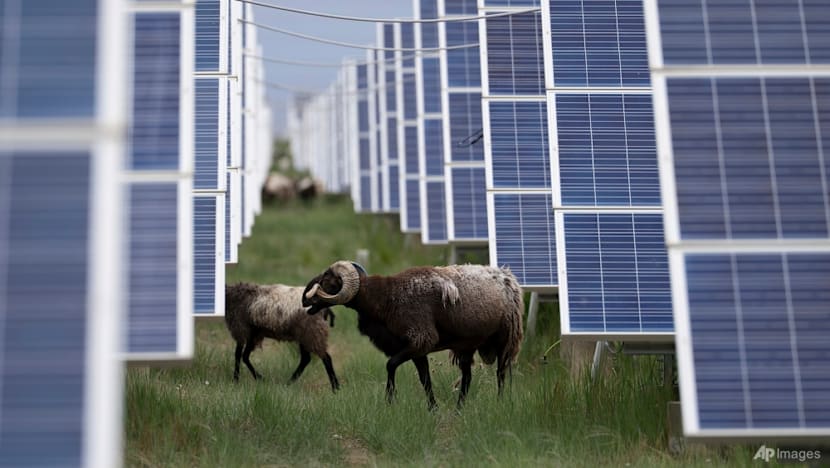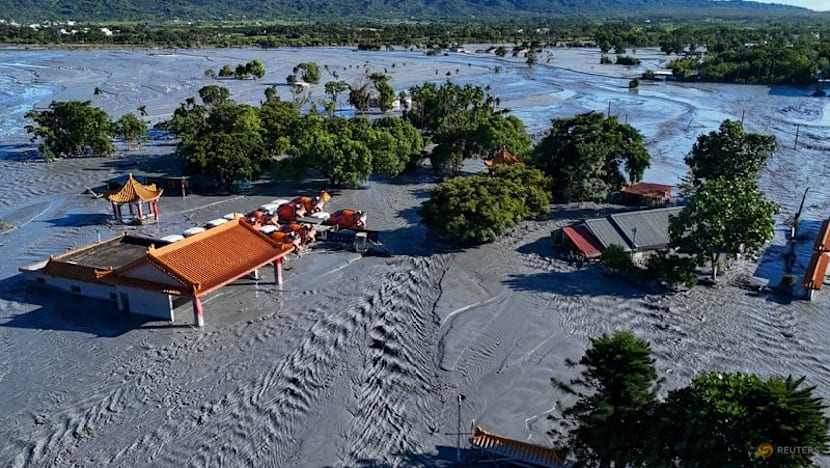China steps into climate leadership role with new goals as the US falls behind: Analysts
Experts say China’s recent commitment marks a major step forward in global climate action, standing in stark contrast to the US’s retreat from international climate goals.


This audio is generated by an AI tool.
China has made a landmark climate pledge to cut greenhouse gas emissions by 7 to 10 per cent below peak levels by 2035.
Beijing’s reduction target marks the first time the world's biggest emitter has committed to an actual decrease in emissions, rather than merely slowing their growth.
Chinese President Xi Jinping made the announcement at a climate leaders’ summit on Wednesday (Sep 24), where the United States was notably absent.
Analysts say China’s commitment is a pivotal moment in global climate action, with the potential to substantially improve the health of the planet.
“China is such a big emitter that it's the only country that, if it changes its emissions significantly, it changes the (carbon footprint) of the whole of planet Earth,” said Benjamin Horton, dean of the City University of Hong Kong’s School of Energy and Environment.
Beijing's vow is backed by promises to expand wind and solar power capacity sixfold from 2020 levels, drastically increase forest coverage and accelerate electric vehicle production.
Yao Zhe, a global policy advisor at environmental organisation Greenpeace East Asia, said Xi’s reduction target is a modest baseline.
With strong momentum in its clean energy developments, China could surpass its current pledge, she added.

“China is the world's largest carbon emitter … but it is also the biggest clean technology provider. So, what China has to offer matters a lot,” Yao told CNA’s East Asia Tonight programme.
“I'm hopeful that the actual progress will, in fact, outpace the target on paper.”
AMERICA MISSING ON CLIMATE ACTION
Experts said China’s commitment speaks volumes at a time when the US is moving away from global climate goals.
The US is the world's biggest historical greenhouse gas emitter and second biggest current emitter behind China.
Washington once promised major emission cuts under previous President Joe Biden – up to 66 per cent by 2035.
But those pledges are now off the table after President Donald Trump in January pulled the US out of the Paris Agreement.
“The Paris Agreement was put in place because scientists know the dangers for civilisation if we start to cross planetary boundaries … (when) global mean temperature (rises) 1.5 degrees Celsius above pre-industrial (levels),” said Horton.
The global average atmospheric carbon dioxide was 422.8 parts per million in 2024 – a record high, according to the National Oceanic and Atmospheric Administration (NOAA), an American scientific and regulatory agency.
“The safety net for planet Earth is at around 280 parts per million. So, we’re far in excess of that. Every single year we increase our carbon dioxide … we increase our temperatures,” said Horton.
Last year was the warmest year on record.
Scientists have linked rising temperatures to more extreme weather events such as drought, wildfires, heatwaves and storms.
Horton, who is based in Hong Kong, pointed to Super Typhoon Ragasa, which in recent days wreaked havoc in the territory and nearby countries and regions.
“We need to see action and ultimately, we need to see results. We need to see our carbon dioxide volumes starting to stabilise, and as we move into the future, to decrease,” he said.

CHINA IN CONTRAST TO US’ STANCE
On Tuesday, Trump called climate change the “greatest con job ever perpetrated on the world” during his United Nations General Assembly speech. He added that climate predictions are made by “stupid people” and that countries will “fail” if they continue with the “green scam”.
In contrast, Xi urged stronger climate action from developed countries and delivered a veiled critique of the US president's anti-climate rhetoric.
Horton said China's pledges appear genuine, stemming from concern for environmental health and long-term economic prosperity, rather than over rivalry with the US.
“This is not about geopolitics. (The pledge) shows that the Chinese government is listening to science and is developing regulations and policies,” he said.
“It's about an understanding of scientific information and (climate) threats posed to the population (and) the economy. If we don't control our carbon dioxide emissions, extreme (weather) events are going to impact lives and livelihoods.”
Still, many observers said Xi’s pledge fell short of expectations.
Yao said the biggest challenge to China’s clean energy transition lies in the limited capacity of its power grid to handle increased renewable energy input.
“China has no problem producing and manufacturing such equipment, but the problem is whether the grid can absorb all this (additional) renewable energy being produced,” she said.
She added that Chinese policymakers are also trying to find a balance between decarbonisation and maintaining flexibility for future economic stimulus.
CLIMATE HEALTH LINKED TO ECONOMY
The UN has hailed Beijing’s commitments but said the world must aim higher as the clock ticks down on rising temperatures.
Alongside China, the UN said about 100 nations have signalled new climate targets ahead of the COP30 climate summit in Brazil in November.
However, there were also setbacks. The European Union is struggling to find unity on climate action, missing the September deadline to present its climate plan.
Environmental advocates warned that climate health is closely connected to that of the economy, and that environmental degradation can lead to serious financial consequences.
Horton said it is a link China appears to be acting on, while the US remains divided.
He added that the climate agenda should be on the table at all trade talks, especially major ones like the Group of 7 (G7) and Group of 20 (G20) meetings, as “we cannot have a healthy economy without a healthy planet”.
“In China, science and business are starting to work hand-in-hand. Contrast that to the US,” he said.
“On one side of the geopolitical boundary, we have science and policy starting to align, and on the other side, we see the divergence.”

















